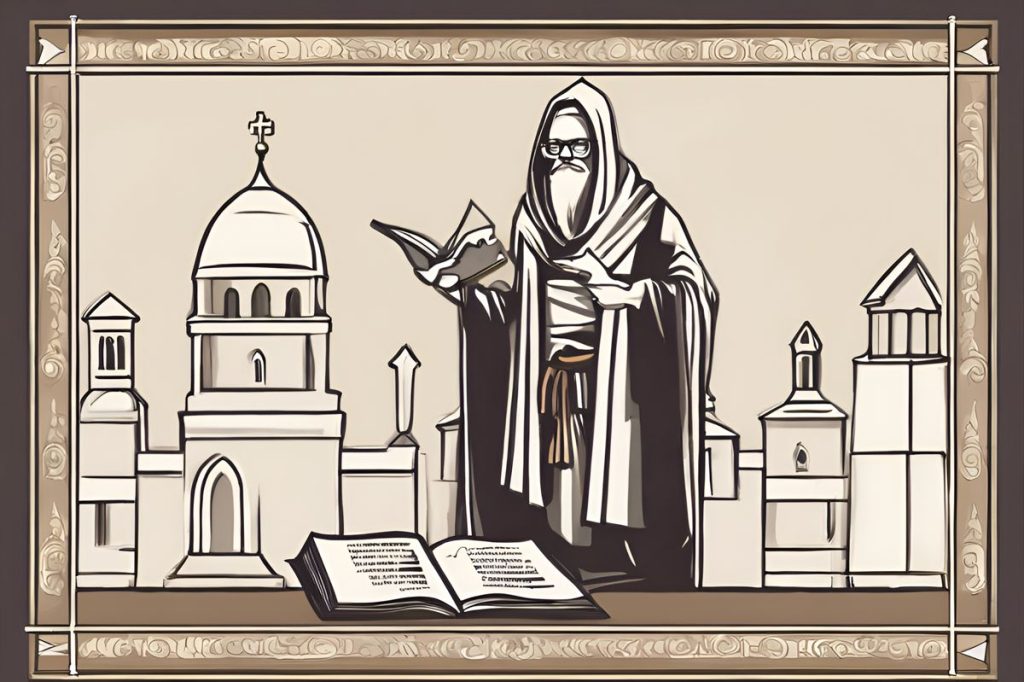In the heart of Fterikoudes, the Osiou Avakoum Monastery faces a heated dispute involving suspended monks accused of financial and sexual misconduct. Tamassos Bishop Isaias threatens police intervention if the monks attempt to return post-suspension, sparking a battle over church charter violations that could shape church-state relations.
What is the controversy surrounding the Osiou Avakoum Monastery?
The Osiou Avakoum Monastery faces a dispute involving suspended monks accused of financial and sexual misconduct. Tamassos Bishop Isaias threatens police intervention if they attempt to return post-suspension, while legal representatives challenge this, citing the church charter’s violation. This standoff could set a precedent for church-state relations.
The Standoff Intensifies
In the heart of Fterikoudes, the serene silence of the Osiou Avakoum monastery is disturbed by a storm of controversy. Tamassos Bishop Isaias, amidst a scandal that has gripped the public since March, has starkly warned that police forces may be deployed should the suspended monks seek to return after June 6. This date marks the end of their suspension, which was instituted following allegations involving financial misconduct and sexual impropriety.
The dispute has not only encompassed the monks but has also ensnared Isaias himself. Accusations have flown from both camps, with claims of kidnapping by the bishop, involving hooded officers no less, miring the waters. This alleged forceful removal from the monastery has prompted an investigation that is currently being pursued by both the police and the church’s internal authorities.
Legal Challenges and Church Charter Conflicts
As the waters of this ecclesiastic dispute roil, the legal representatives of the monks, led by Adriana Klaedes, have vocally opposed the extension of the monks’ suspension, declaring it in contravention of the church’s charter. Klaedes, in her communications with authorities, has underscored that the imposed suspension oversteps the bounds of ecclesiastic law, stating, “The extension violates the sacred rules as well as the provisions and stipulations of the Charter of [the church of] Cyprus.”
The church charter, a document steeped in tradition and authority, is being wielded as a shield by the monks’ defense. They contend that the suspension, which was initially set for a finite duration, cannot be extended unilaterally and that their imminent return is a right, not a privilege. Despite these assertions, Bishop Isaias stands firm in his resolve, hinting at the readiness to employ police forces should the monks proceed with their intended return.
A Test of Wills
This unfolding saga is not merely a power struggle within the walls of a religious institution; it goes beyond that. It’s a narrative that has captivated the faithful and secular alike, as it intertwines the threads of legal rights, ecclesiastic governance, and personal freedoms. Emotions have flared, and the community watches with bated breath, as the date of June 6 looms on the horizon, a potential tipping point that could set a precedent for church-state relations.
The drama is not without its darker undertones. Past confrontations have been marred with accusations of violence and intimidation. Thirty individuals, ten shrouded in hoods—a visual right out of a bygone era—were reportedly deployed to extract the monks from their spiritual haven. The monks’ legal team has painted a vivid picture of this intrusion, detailing the forceful confiscation of personal effects and the alleged rough handling that their clients endured.
The Eyes of the Faithful and the State
What comes next is a matter of speculation, but one thing is for certain: the outcome of this confrontation will resonate far beyond the monastery’s walls. It will be a statement about the intersection of religious practice and civil authority, about the balance between the autonomy of spiritual entities and the reach of the law.
As these two forces brace for a potential clash, observers are reminded that the core of this dispute is not merely about regulations and charters. It is about the trust placed in religious leaders, the sanctity of religious institutions, and the faith of those who look to these establishments for guidance and solace in tumultuous times.
What is the controversy surrounding the Osiou Avakoum Monastery?
The Osiou Avakoum Monastery is embroiled in a dispute involving suspended monks accused of financial and sexual misconduct. Tamassos Bishop Isaias has threatened police intervention if the monks attempt to return post-suspension, leading to a battle over church charter violations that could impact church-state relations.
What legal challenges have arisen in the dispute?
Legal representatives of the monks, led by Adriana Klaedes, have opposed the extension of the monks’ suspension, citing violations of the church’s charter. They argue that the extension infringes on ecclesiastic law and breaches the provisions of the church’s charter, asserting that the monks have a right to return.
How has Bishop Isaias responded to the monks’ intentions to return?
Bishop Isaias has stood firm in his resolve to prevent the monks from returning, hinting at the readiness to employ police forces if necessary. This stance has intensified the standoff, with the Bishop facing accusations of kidnapping and a looming investigation by both police and internal church authorities.
What broader implications does this dispute have?
The unfolding saga at Osiou Avakoum Monastery goes beyond a mere power struggle within a religious institution. It represents a test of wills between ecclesiastic governance, legal rights, and personal freedoms. The outcome of this confrontation could set a precedent for church-state relations and have lasting implications for the balance between religious autonomy and civil authority.

